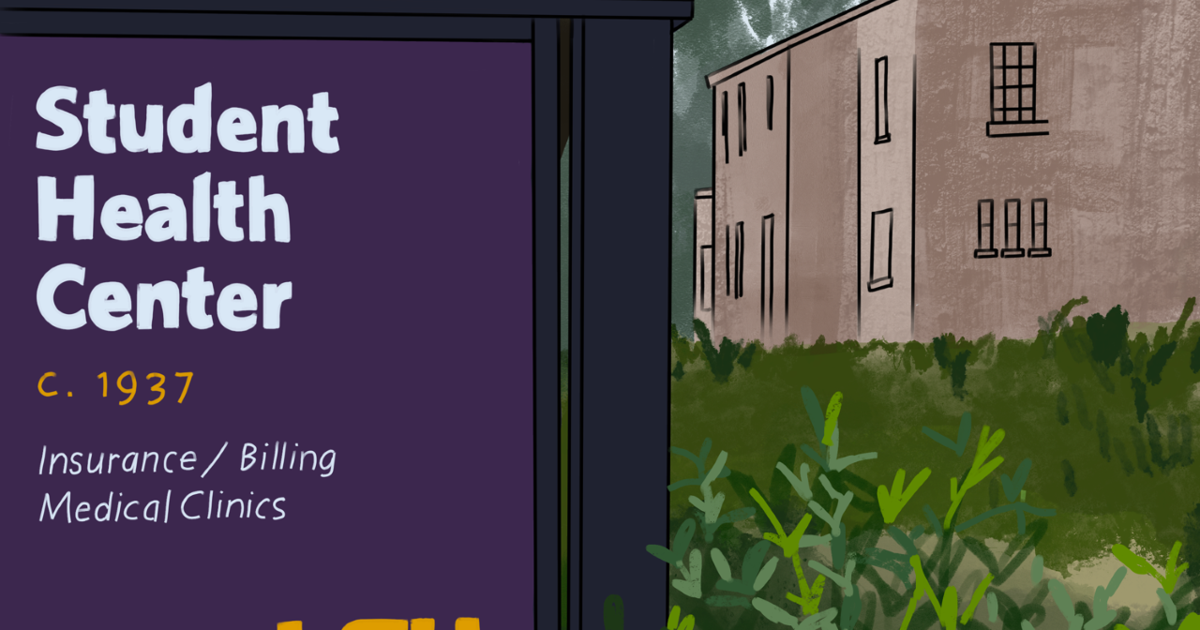Opinion: Student Health Center must improve accessibility, especially for uninsured students – The Reveille, LSU's student newspaper

The LSU Student Health Center offers students an extensive range of services: vaccinations, STD testing, diagnostic imaging, psychiatric care, gynecology services, and more. However, these necessary services come at a hefty cost with limited accessibility.Â
Healthcare accessibility is an unfortunately common issue, especially among college students. One-in-five college students do not have health insurance.Â
I am part of that one-in-five; my family makes too much money to receive Medicaid, but other health insurances are too expensive. While there is university-offered health insurance, it amounts to a costly $1,639 for the spring and summer semesters. For students like me who finance their own housing and tuition, paying that much for a few months of health insurance simply isn’t an option.
The consequences of this inaccessibility became even more evident to me when I fell ill earlier this month. My free COVID-19 test came back negative, so I called the SHC to ask how much it would cost to get a flu test. The nurse told me it would be at least $97-200 for just a visit, not even including the cost of a flu test itself.
That $200 forced me to choose between paying my fee bill or visiting the doctor. So, I made a choice no student should have to make and rode out the illness alone. Thankfully, I was fine, but I shouldn’t have had to decide between my tuition and access to healthcare services.
It’s not just uninsured students who face accessibility issues. A trip to the SHC can be costly, even for those with insurance.Â
Anthropology sophomore Gracie Bass paid $50 for a dermatologist referral and another $50 for the dermatologist appointment. Bass shelled out $100 to talk to a dermatologist for a few minutes and get one prescription.Â
âYou have to be referred to their dermatologist, so youâre required to speak to someone beforehand,â Bass said. âTotal for just the visit I was billed $100 and all I did was really speak to them. I was in there for maybe ten minutes in their office. It just seems too ridiculous for health coverage to be expensive this way when health coverage is the bare minimum.â
Not only did Bass pay a steep price for her brief visit, but she had difficulty seeing someone at all.Â
âBooking an appointment was hard. They have two dermatologists, but one only goes in on Fridays. The other was booked up until March,â Bass said. âThere is a lack of accessibility for students even with health insurance.â
The SHC altered its policy about health insurance last year, raising new accessibility issues.
The SHC changed its billing system on May 10, 2021, to accept health insurance, including Medicaid. Prior to this change, the SHC was more accessible to students without health insurance or those who do not want to use their insurance.Â
While the new billing system benefits a large number of students with insurance, it also leaves behind uninsured students and students with high insurance deductibles like Bass. The new billing system serves some students while abandoning others; reform is necessary to expand access to everyone on campus.Â
The SHC strongly encourages every student to have health insurance and provides a free forum that connects students with resources to afford health insurance and understand the billing process. More information on the free forum can be found at the SHC website under the billing and insurance tab.
SHC Executive Director Julie J. Hupperich said that while she is aware health insurance can be expensive, students should not take the risk of being uninsured.Â
âWe try to get students to understand how important health insurance is. Some students risk it hoping that they don’t get seriously sick,â Hupperich said. âWe don’t want students to be billed for millions of dollars for something terrible.â
Hupperich is right; it is vital to have health insurance. An unexpected emergency or accident could leave anyone with astronomical medical bills. Health insurance can help save someone from life-long debt. To ensure more students avoid this risk, the SHC is trying to lower the universityâs health insurance premium to increase accessibility.
Inaccessibility at the SHC is a symptom of broader issues in the American healthcare system. At LSU and beyond, people across the country are forced to choose between healthcare and other necessities.
Students already spend thousands of dollars to get an education at the university. Therefore, offering affordable healthcare access to all students is the bare minimum and only makes sense.
Kacey Buercklin is a 20-year-old political communication senior from Murrayville, GA.Â







